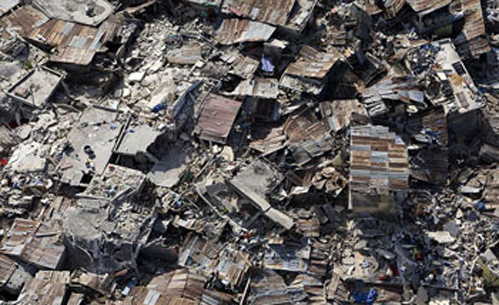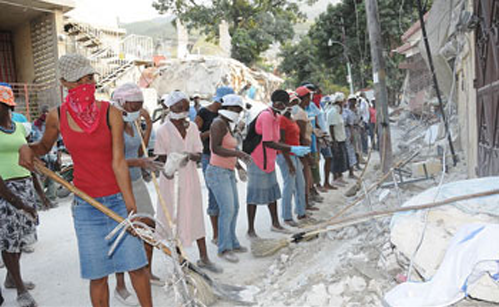UnNatural Disasters

Massive earthquakes shook Haiti and Chile earlier this year. Why did the quake in Haiti cause so much more suffering and destruction than the one 500 times larger that struck Chile a month and a half later?
Comparing Earthquakes
On the night of January 12, 2010, an earthquake measuring 7.0 struck Haiti. When the sun came up the next day, Haiti was a changed country. The quake left approximately 230,000 dead, 300,000 injured and 1,000,000 homeless. It also destroyed an estimated 250,000 homes. The numbers only begin to suggest the incomprehensible suffering and destruction visited on the people of Haiti.
In the early morning of March 27, 2010, another earthquake shook Chile. When reports came about the magnitude of the earthquake, many braced for the worst. This earthquake also caused suffering and destruction, but the scale was mercifully smaller than in Haiti. Reports estimate that approximately 700 people died. Many buildings were also destroyed. Why the huge difference?

The Role of Poverty
Part of the answer lies in the different levels of wealth and poverty in both countries. Haiti is often described as the poorest country in the Americas. Approximately 75% of Haitians live on less than $2 per day. Haiti is also the most deforested country in the Western Hemisphere. Living in a degraded environment, and without basic needs such as access to water, housing or education makes Haitians much more vulnerable to the destruction of natural disasters than people in other countries.
The earthquake is just one example. In 2008, Cuba and Haiti were both hit by numerous hurricanes. Four Cubans died that year as a result. In Haiti about 330 people died and 800,000 were left in need of humanitarian assistance. The difference was their standard of living and the capacity of their government to provide assistance. It was also the poorest in Haiti who were most affected. The devastation was worst in the capital of Port-au-Prince, where many people are housed in poor and densely-packed shantytowns and badly-constructed buildings.
The Response

Canadians responded generously to the overwhelming suffering they saw following the earthquake in Haiti. The Canadian government for example, pledged $400 million in government-to-government aid to Haiti, in addition to the $110 million it set aside for matching individual donations.
World Accord did not organize an emergency appeal nor ask for donations for Haiti, and still received more than $15,000. Normally, World Accord does not do relief work. We have done it in the past when the communities our partners directly work with have been affected, as in the case of Hurricane Mitch in 1998. World Accord generally focuses on long-term development through local, established partners overseas. Precisely the type of work that helps prevent natural disasters from becoming amplified by chronic injustice and poverty.
World Accord accepted donations for the Haiti earthquake to honour the trust our supporters place in us, and in our development philosophy. We channelled those donations to the Mennonite Central Committee and to FIDA. Two organizations with a long-term presence and roots in Haiti that we know will stay to work with Haitians long after this particular disaster disappears from the news.
Haiti is not only the “land of poverty” the media often portrays it to be. It is a nation with a proud history, rich agricultural potential and vibrant culture. For instance, Haiti is the first country born of a slave revolt. It also played a critical part in helping its South American neighbours achieve independence. Today, Haiti also has a varied and rich civil society sector that is ready to rebuild.
Haiti can be a prosperous, secure place given the right circumstances: a more equitable distribution of resources through real economic opportunities, and democratic participation for its citizens. As David Barth recently explained to World Accord’s supporters, “we can’t stop natural disasters from happening, but we can minimize their impact through solid development work.”
